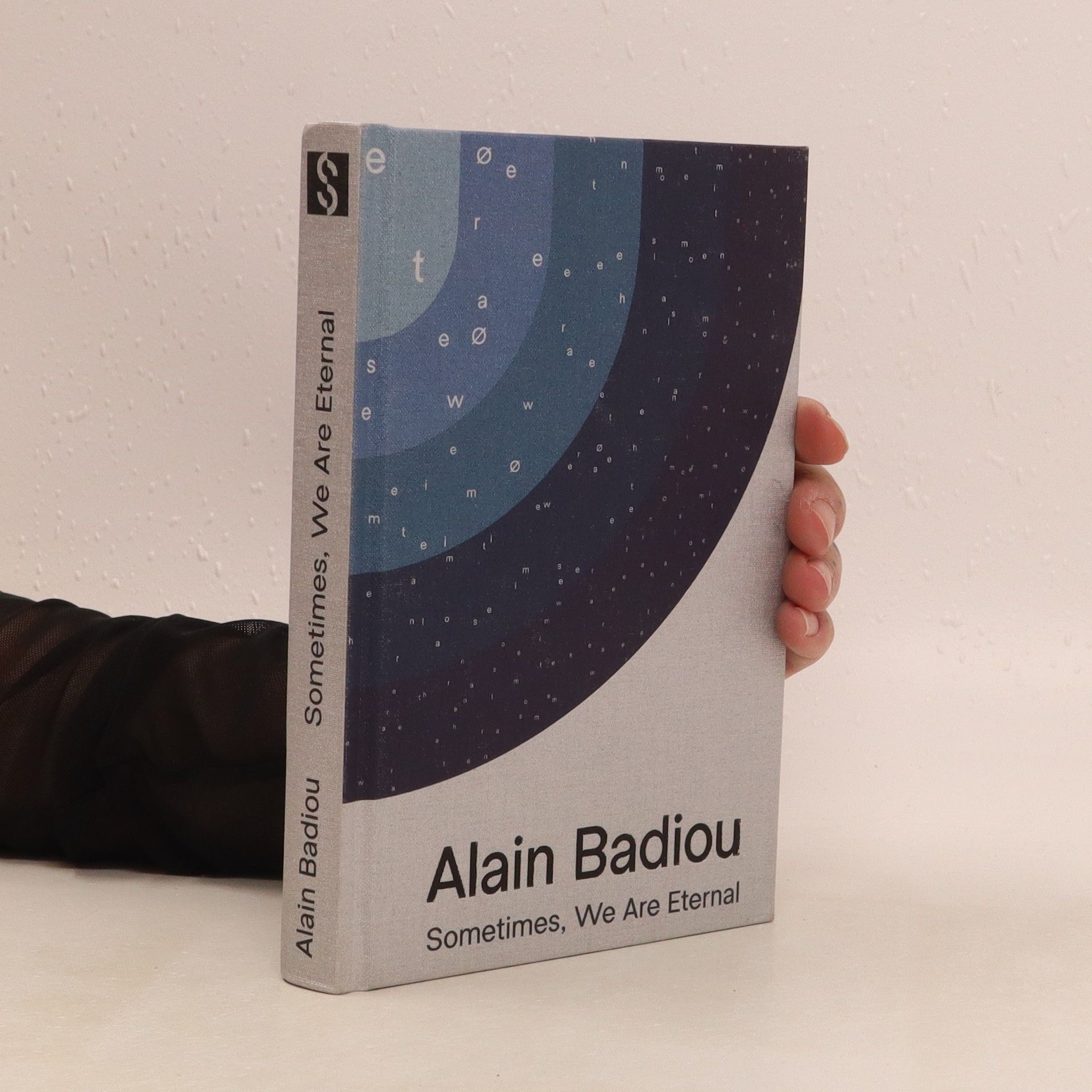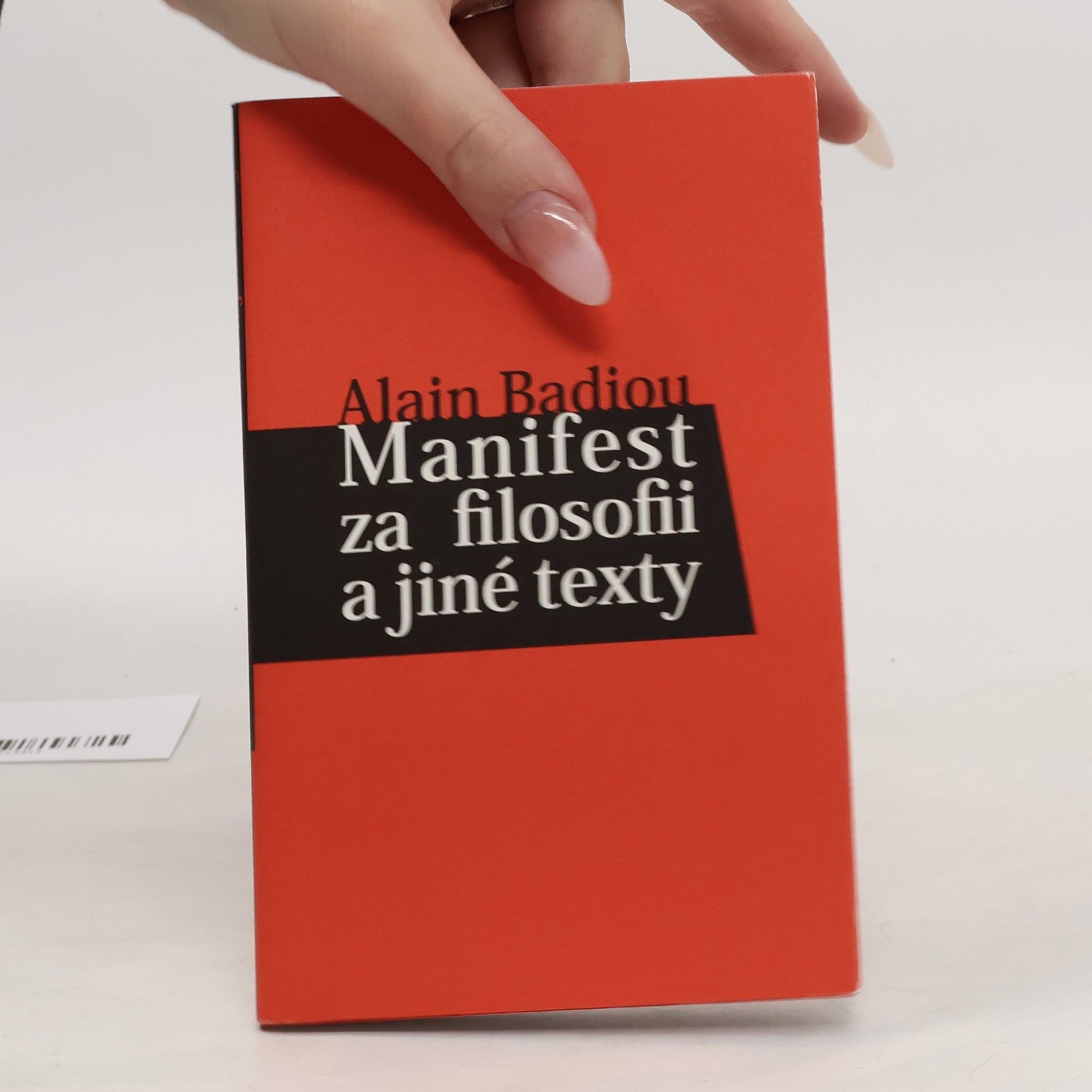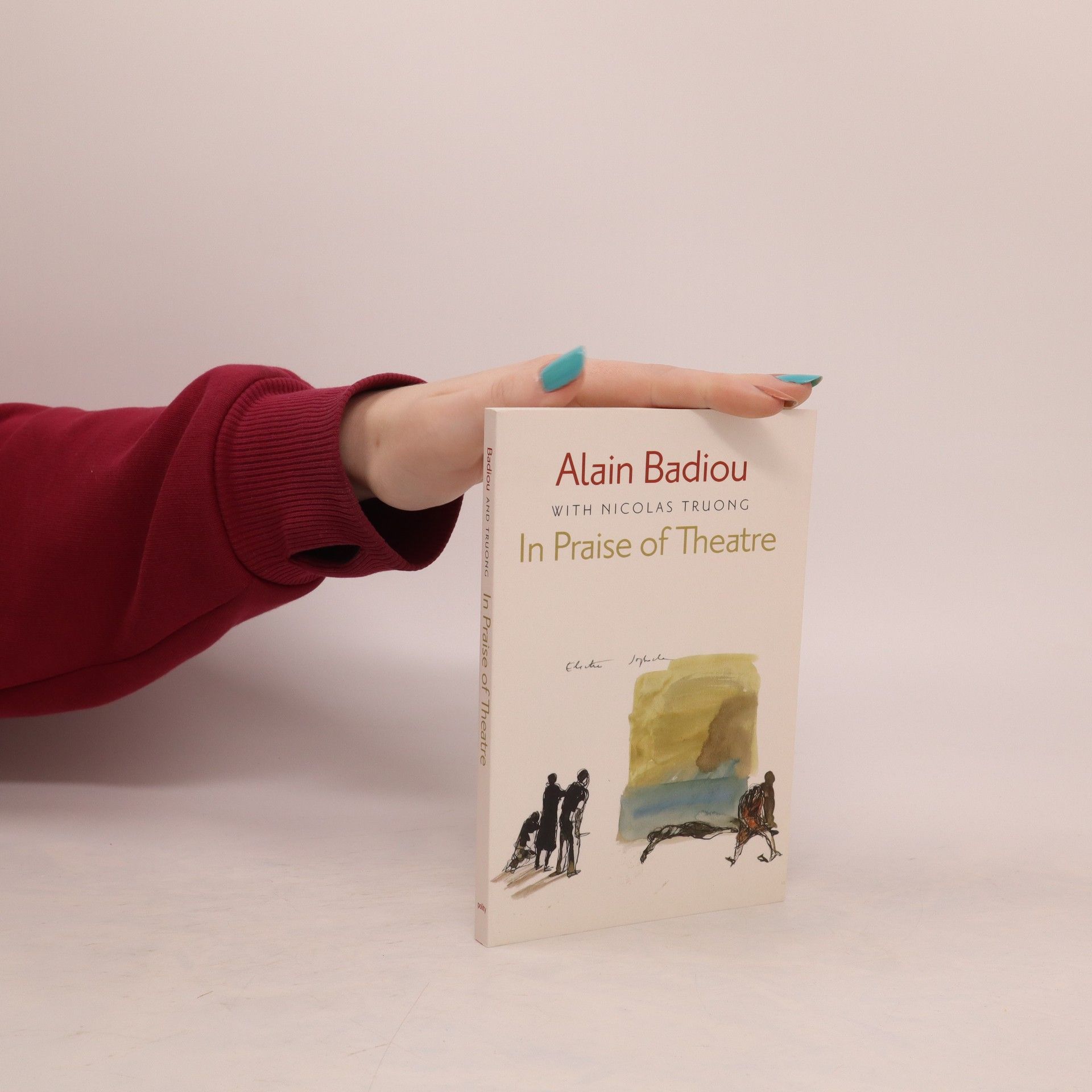V této knize se předkládá nová interpretace sv. Pavla, v němž Alain Badiou objevuje zakladatele emancipačního evropského univerzalismu. V jeho podání se ze sv. Pavla stává navýsost aktuální postava, která přináší univerzalitu, jež může sloužit jako hráz proti dnešní záplavě partikularismů (nacionalismu, rasismu, sociálního vyloučení). V novém světle tak ožívají základní pojmy křesťanství, jehož jedinečnost se v multikulturní Evropě často přehlíží. Alain Badiou je profesorem na Ecole Normale Supérieure v Paříži. Patří k nejobjevnějším francouzským filosofům dneška. Ve svých pracích se snaží dát nový význam velkým pojmům filosofické tradice, jako je univerzalita nebo pravda.
Alain Badiou Knihy
Alain Badiou je jedním z nejoriginálnějších současných francouzských filozofů. Vychází z matematiky a jeho myšlení je silně ovlivněno Platónem, Heglem, Lacanem a Deleuzem. Badiou ostře kritizuje analytickou filozofii i postmodernismus. Jeho filozofie se snaží odhalit a pochopit potenciál radikálních inovací, jako jsou revoluce, vynálezy a proměny, v jakékoli situaci. Jeho dílo zkoumá možnosti vzniku nového v různých oblastech lidské zkušenosti.







Manifest za filosofii a jiné texty
- 136 stránek
- 5 hodin čtení
Je dnes filosofie možná? Lze ji definovat? Jaký vztah ji pojí k oblastem jako umění, politika, láska nebo věda? Je či může být filosofie systematická? Výbor Manifest za filosofii a jiné texty představuje způsob, jakým na tyto a jiné otázky odpovídá francouzský filosof a spisovatel Alain Badiou. Jeho Manifest za filosofii byl v době svého vzniku (1989) ojedinělým pokusem o nalezení takové formy myšlení, která by umožnila zajít o krok dál za horizont, do nějž filosofii uzavírají dominantní myšlenkové proudy 20. století. Kniha v českém prostředí poprvé představuje základní motivy Badiouovy ontologické koncepce, již rozvinul o rok dříve v prvním dílu svého základního textu Bytí a událost.
The Immanence of Truths
- 448 stránek
- 16 hodin čtení
The Being and Event trilogy is the philosophical basis of Alain Badiou's entire oeuvre. It is formed of three major texts, which constitute a kind of metaphysical saga: Being and Event (1988). ), Logics of the Worlds (2006) and finally The Immanence of Truths, which he has been working on for 15 years. The new volume reverses the perspective adopted in Logics of Worlds. Where in that book, Badiou saw fit to analyze how truths, qua events, appear from the perspective of particular worlds that by definition exclude them, in The Immanence of Truths Badiou asks instead how the irruption of truth transforms the worlds within which they by necessity must arise. An emphasis on regularity and continuity has given way to an attempt, one unquestionable in its philosophical power and implications, to formalize rupture and reconfiguration. The Being and Event trilogy is a unique and ambitious work that reveals how truths can be at once context-specific and universal, situational and eternal.
Sometimes, We Are Eternal
- 176 stránek
- 7 hodin čtení
A New Dawn for Politics
- 150 stránek
- 6 hodin čtení
What is the relation between politics and the world? It might seem that global capitalism has created one world, but this is an illusion because capitalism creates a world of objects and money that divides human existence into regions separated by fences and walls built to keep some people out. In place of this falsely unified world of global capitalism, we need to assert a fundamental principle - namely, that there is one world of living subjects. This, in Badiou's view, is the categorical imperative of all true politics.The one world of living subjects is the place where an infinity of differences and identities exist. Hence foreigners are not a problem but rather an opportunity and a gift. They bear witness to the youth of the world in its infinite variety, and it is with this youth that the politics of the future rests. Foreignness is the means by which existence is re-evaluated, and all true politics is a new dawn of existence.This collection of essays by Badiou, in which he draws out the political implications of recent events and social movements, will be of value to anyone interested in the great social and political questions of our time.
Logics of Worlds
- 600 stránek
- 21 hodin čtení
"French philosopher Alain Badiou (b. 1937) introduces the concept of democratic materialism to refer to the belief that there are only bodies and languages, then employs a fair amount of science in what he calls a somewhat fastidious examine of it. He covers formal theory on the subject (meta-physics); the greater logics: the transcendental, the object, and relation; the four forms of change; the theory of points; what a body is; and what it is to live."--Provided by publisher.
In Praise of Theatre is Alain Badiou’s latest work on the ‘most complete of the arts,’ the theatrical stage. This book, certain to be of great interest to scholars and theatre practitioners alike, elaborates the theory of the theatre developed by Badiou in works such as Rhapsody for the Theatre and the ‘Theses on Theatre’ and enquires into the status of a theatre that would be adequate to our ‘contemporary, market-oriented chaos.’ In a departure from his usual emphasis upon canonical figures of the stage such as Bertolt Brecht and Samuel Beckett, Badiou devotes In Praise of Theatre largely to a consideration of contemporary practitioners, including Jan Fabre, Brigitte Jacques and Romeo Castellucci. In addition, the book features an incisive analysis of the precarious status of the theatre today, in which Badiou describes not only the current threats to the theatre from the right, but the far more insidious threat from the left.
Images of the Present Time
- 472 stránek
- 17 hodin čtení
Exploring the interplay between philosophy and contemporary concepts, this collection features Alain Badiou's seminars from 2001 to 2004. It delves into how philosophical thought engages with the present moment, offering insights into Badiou's unique perspective on time, existence, and the implications for understanding contemporary issues. Through rigorous analysis, the work invites readers to reflect on the significance of the present in philosophical discourse.
Lacan
- 312 stránek
- 11 hodin čtení
The transcript of Alain Badiou's year-long seminar on the psychoanalytic theory of Jacques Lacan, this book offers a forceful reading of an enigmatic yet foundational thinker and sheds light on the crucial role that Lacan plays in Badiou's own thought. It is the first volume of Badiou's seminars to be published in English.
The One
- 288 stránek
- 11 hodin čtení
Alain Badiou's 1983-1984 lecture series focuses on the philosophical concept of oneness in the works of Descartes, Plato, and Kant-a crucial foil for his signature metaphysical concept, the multiple.
